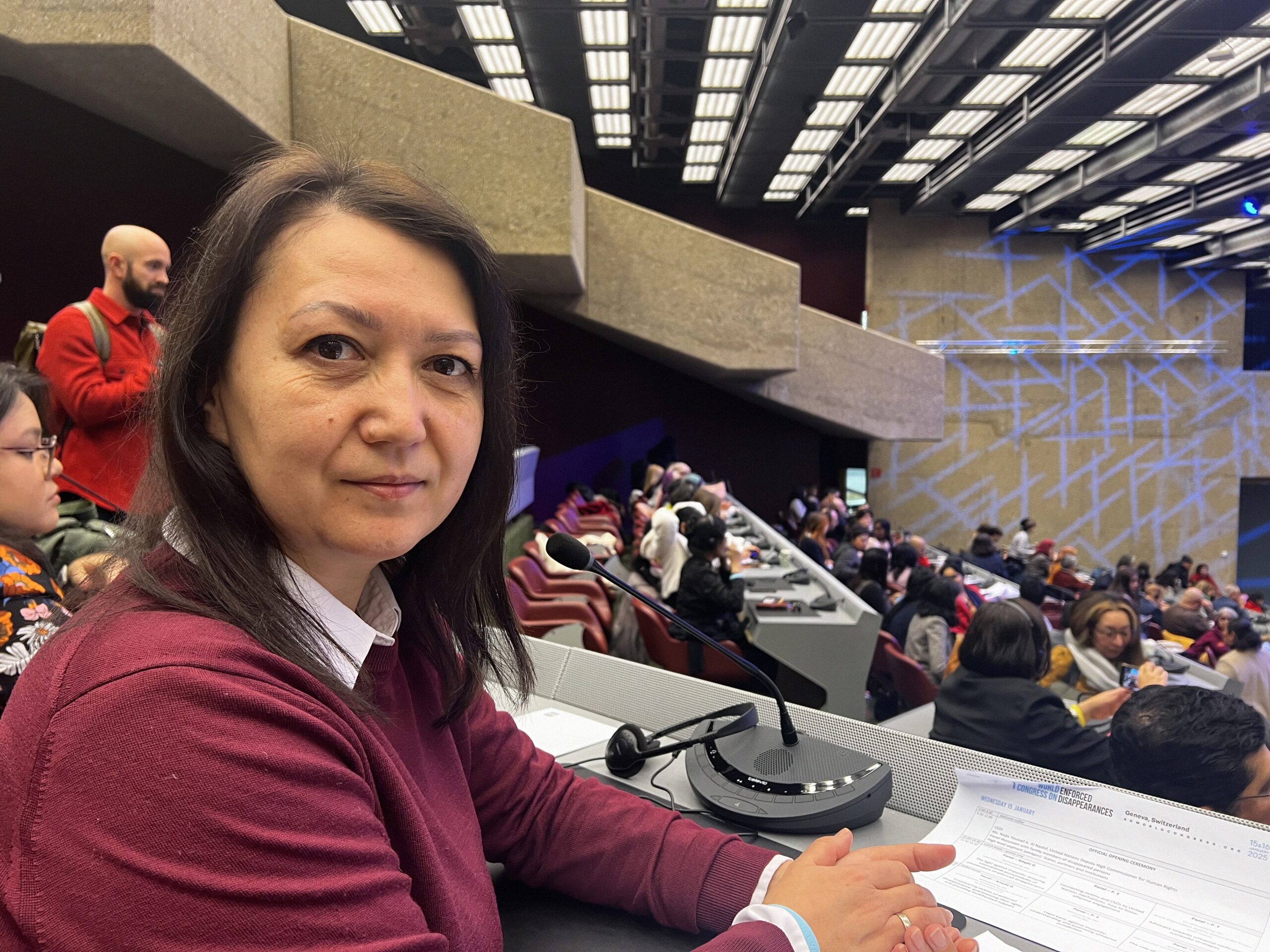The Center for Civil Liberties Participated in the First World Congress on Enforced Disappearances

On 15-16 January, the First World Congress on Enforced Disappearances was held. It united participants from all over the world in shared determination to combat this serious human rights violation. The World Congress has brought together hundreds of participants from all regions, including victims and their family members, high-level government representatives, human rights organizations and legal experts, thereby underscoring the universal nature of this critical challenge. Nataliia Yashchuk, Senior War Consequences Officer, represented the Center for Civil Liberties at the Congress.
The solemn opening ceremony of the Congress brought into the spotlight family members of victims of enforced disappearances who shared their stories about the profound impact of these crimes on both individuals and communities. Their voices emphasized their suffering from the lack of knowledge of what happened to their dear ones, and also the decisive role they play in the search for truth and justice. In the course of two days, the participants attended panel discussions and seminars designed to find solutions, share best practices and amplify the voices of those who have been personally affected by enforced disappearances.
Nada Al-Nashif, United Nations Deputy High Commissioner for Human Rights, delivered a persuasive address, emphasizing the urgent need for coordinated international actions. Ms Al-Nashif urged all the participants “to join forces, share knowledge and lessons, and strengthen cooperation and political commitment to tackle this dreadful crime”.
Aksinia Bobruiko, the daughter of a Ukrainian, whom the Russian military arrested in 2024 and against whom they fabricated a criminal case, was one of the speakers at the Congress. The girl spoke about how Russia flagrantly violated human rights in the occupied territories, imprisoning civilians. Such cases occur almost daily in the occupied territories, and, as of today, the situation with victims of enforced disappearances and arbitrary detentions is dramatically deteriorating in the occupied territories of Ukraine.
“Before the full-scale invasion, my mother had been employed in a kindergarten and, under occupation, she refused to collaborate with the occupation authorities. My mom remained under occupation to look after her elderly parents in need of care. On 15 May 2024, contact with her was lost. A few days later, my mother was brought home by unknown individuals, she was depressed and covered with bruises. On 26 June, she was taken to a field with a bag over her head, they gave her packages with explosives and called the police, ordering her to tell them that she had found these in the field. In this manner, they instituted a criminal case against my mom, and she is still detained in the occupied territory”, Aksinia Bobruiko said.
Delegates from Argentina, Colombia, Syria, Afghanistan, India, Morocco, Egypt, Burundi, Bangladesh, Sudan, Thailand and Senegal who faced the issue of enforced disappearances also shared their experiences. Participants from 120 countries attended the Congress, sharing knowledge and engaging in a dialogue on how to strengthen international cooperation.
Nataliia Yashchuk, representative of the Center for Civil Liberties, participated in the World Congress where she had several meetings, in particular, with members of the working group for enforced disappearances and non-governmental international organisations.
The key follow-up actions were identified after the Congress as follows: support for creating a regional network chaired by victims in sub-Saharan Africa, organisation of regular meetings of female searchers, monitoring CED sessions, facilitating the ratification of the international convention, strengthening the capacities of CSOs to collaborate with UN structures and support for establishing a global youth network against enforced disappearances. Each of these initiatives was brought forward at regional consultations held prior to the Congress and represents a commitment to combat enforced disappearances.

